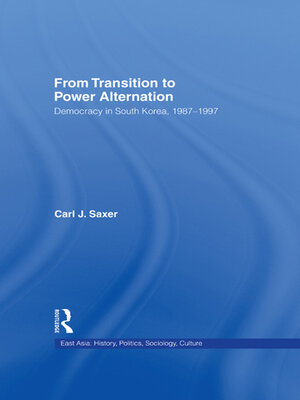From Transition to Power Alternation
ebook ∣ Democracy in South Korea, 1987-1997 · East Asia: History, Politics, Sociology and Culture
By Carl Saxer

Sign up to save your library
With an OverDrive account, you can save your favorite libraries for at-a-glance information about availability. Find out more about OverDrive accounts.
Find this title in Libby, the library reading app by OverDrive.



Search for a digital library with this title
Title found at these libraries:
| Library Name | Distance |
|---|---|
| Loading... |
In 1987 South Korea began a democratic transition after almost three decades of significant economic development under authoritarian rule. Increased civil unrest caused by dissatisfaction resulted in the regime agreeing to constitutional changes in the summer of 1987. By 1992 the first president without a military background was elected and during his tenure a further deepening of democracy took place. These reforms were instrumental in making it possible that in 1997 for the first time in South Korean history an opposition candidate was elected president. This book examines the initial transition and later attempts at consolidating democracy in South Korea, and argues that although significant progress had been made and a power alternation achieved by late 1997, South Korea could not, by the end of that decade (1987-97), be considered a consolidated democracy.







